The reverend Luis Cortés jr., 62, gave the invocation prayer at Barack Obama’s 2013 Presidential Inauguration Luncheon, conferred with House Speaker Nancy Pelosi about not separating migrant families at the border and sipped tea with Prince Charles at Buckingham Palace. Yet wherever Cortés goes, his heart stays in El Barrio: the streets of North Philly’s Hispanic community.
Thirty-five years ago Cortés founded Esperanza, a nonprofit that has since grown into a family of culturally relevant institutions that deliver what the organization’s name promises: hope for Philadelphia’s Hispanic community.
“We serve about 25,000 families a year,” says Cortés, president and CEO of Esperanza, which has 500 employees and an annual budget of $50 million.
In 2020 Cortés became the first Hispanic person to receive The Philadelphia Award, given annually to a city resident who acts in the best interests of the community.
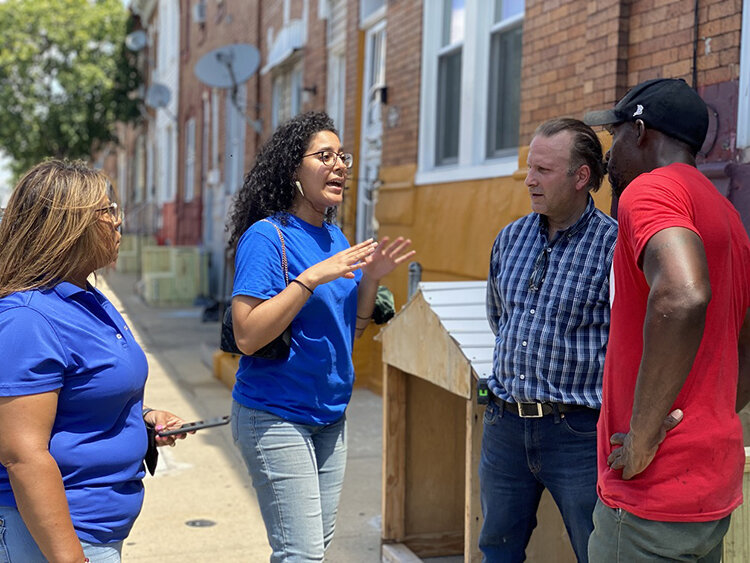
Esperanza’s roots stretch back to Cortés’ rearing in Spanish Harlem in a home with his parents and two brothers.
“I didn’t realize we were poor,” he says. As a teen Cortés received guidance from the congregation of Harlem’s Second Spanish Baptist Church. He also credits Hispanic evangelical theologian Orlando Costas (1942–1987) and local Black civil rights activist the Reverend Leon Sullivan (1922–2001) as mentors.
“Reverend Sullivan put me on the board of United Bank,” Cortés says.
The biblical mandate to serve and advocate for “the least of these” (Matthew 25:40) led Cortés to establish Esperanza. “We have developed a faith-based, community-based response to the needs of Latinos in Philadelphia,” he says.
“I grew up in this community. Esperanza was always here for us. I’ve come full circle.”
— Melissa Lopez, teacher, and former student, at Esperanza
Esperanza’s focus on community development and education led to institutions that addressed specific challenges. Community development, for example, includes the construction of affordable housing, critical home repairs, block beautification, neighborhood greening and community organizing. Cortés has also written five books, including “How to Buy A Home” and “How to Fix Your Credit” (both 2006, Simon & Schuster) that offer practical advice.
Other initiatives address employment.
Esperanza students perform.
“Our Workforce Development assists over 5,000 families a year, most of them headed by single women, in getting job training and placement,” says Cortés. “We aim to move more of the population off of public assistance and into the private sector.”
Esperanza considers employment crucial, but the organization also seems to subscribe to the adage that all work and no play makes for tedium. Artístas y Músicos Latinoamericanos (AMLA) offers music lessons and workshops for children, teens and adults. The new Esperanza Arts Center brings the Pennsylvania Ballet and the Philadelphia Orchestra to North Philadelphia. Since the pandemic, the center has produced a livestream series and the Virtual Latino Arts Festival.
Education constitutes Esperanza’s largest division, with more than 2,000 students. Eight-five percent of the students are economically disadvantaged and 84% qualify for the free school lunch program, according to U.S. News and World Report. Ninety-six percent of the students are Hispanic while 4% are Black, according to that source. Most of the staff is Spanish-English bilingual so that parents find the atmosphere welcoming.
“I’ve been here for 17 years,” says David Rossi, 53, senior vice president and CEO of Esperanza Academy Charter Schools. “I was intrigued by a faith-based community starting a non-sectarian school. I also believe that every child deserves a solid education regardless of their zip code, race or ethnic heritage. Our drop-out rate is less than 1%, and our high school has a graduation rate of 92 to 94%.”
Those numbers reflect innovations that make high school more attractive, according to Rossi. “Our high school looks more like a college,” he says. “Students choose from one of 13 majors such as engineering, health sciences and the arts.”
Students sometimes take the initiative in suggesting extra-curricular activities.
“When I asked about starting a chess team, the administration was responsive,” says Mateo Ruiz-Leal, 18, a senior and an Esperanza student since sixth grade.
“A group of us wanted to do AP Calculus,” says Ruiz-Leal of the Advanced Placement class that allows students who pass an exam to receive college credit.
Ruiz-Leal, who’s majoring in engineering and has received a scholarship to Carnegie Mellon University in Pittsburgh, continues, “We went to the principal about it, and soon the class was provided. The same thing happened when we wanted soccer and a robotics team.”
“Teachers here are very supportive,” Ruiz-Leal adds. “I live near Tacony [Academy Charter] High School, but it’s different there. Pre-pandemic, I used to catch the bus at 6 a.m. so I could get here on time.”
Besides academic grounding, Esperanza schools consider the cultural identity of the community they serve.
“We do things with care, including choosing textbooks,” says Cortés. “Lots of history books devote a chapter to George Washington [1732–1799]. However, many [books] say little about Simón Bolívar [1783–1830], El Libertador [The Liberator], a Venezuelan military and political leader who freed vast stretches of South America from Spain’s rule in the early 1800s. Our children need to know about Bolívar. If our children become aware of our accomplishments early in their lives, they cannot be psychologically subjugated. Our institutions help our children survive a cultural onslaught.”
Esperanza’s 17-acre site in Hunting Park includes a branch campus of Eastern University, a private Christian school; Esperanza College is a federally recognized, Hispanic-serving institution. “We focus on two-year degrees,” says Cortés. “We have over 200 students. Six out of ten of our graduates finish their BA at Temple, La Salle or Eastern’s main campus.”
Cortés’ own hope is that Esperanza graduates will return to El Barrio to live and start businesses and institutions that will anchor it. He has already seen some graduates return.
“I grew up in this community,” says Melissa Lopez, 44, a teacher here. “Esperanza was always that pillar for us,” she says, her voice tearful. “I’ve come full circle.”
Lopez grew up near North 3rd and North Cambria streets and now lives in Mayfair. “In 2023 our elementary school will open. I can’t wait. We’ll have the full range [from kindergarten to college] then. I have high expectations for my students.”
Looking to the future, Cortés says, “In the past 30 [years] we’ve laid the foundation for an ‘opportunity community’ where anyone can access services that improve the quality of life. We are working on many other plans to address gentrification, health challenges and ensure our community is empowered.”




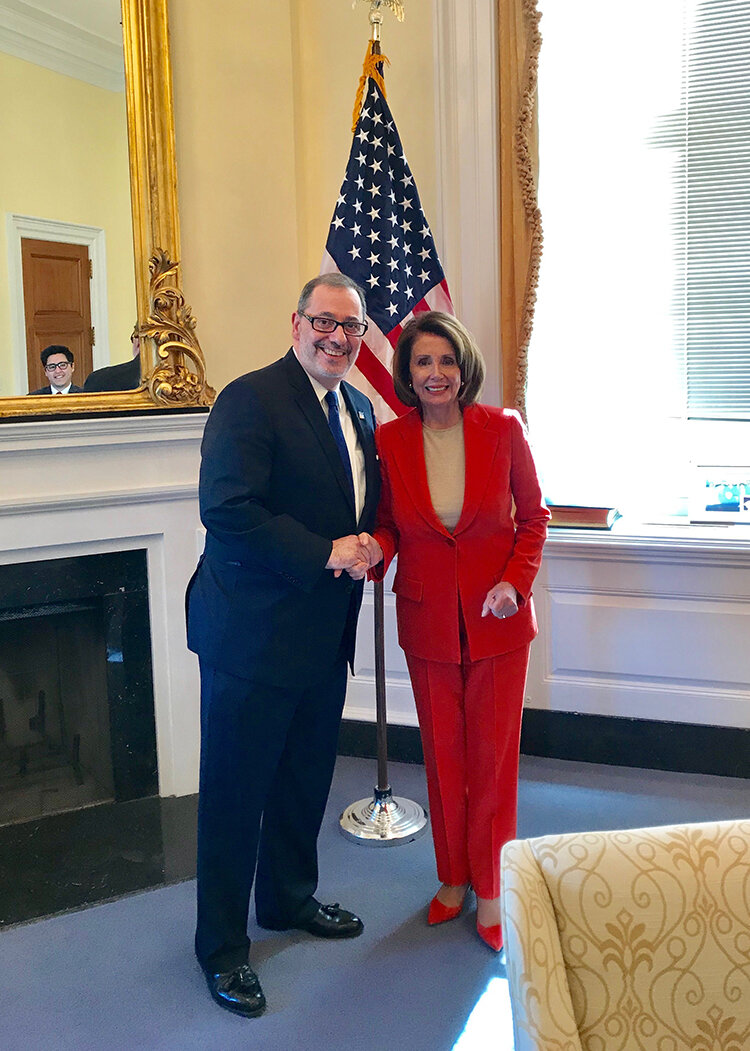
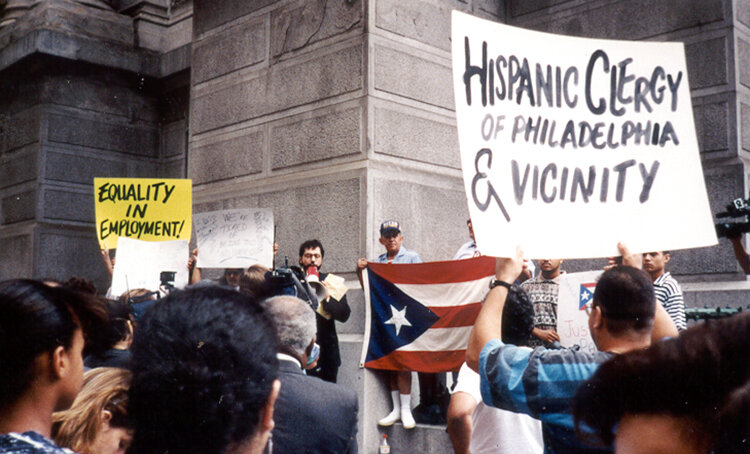
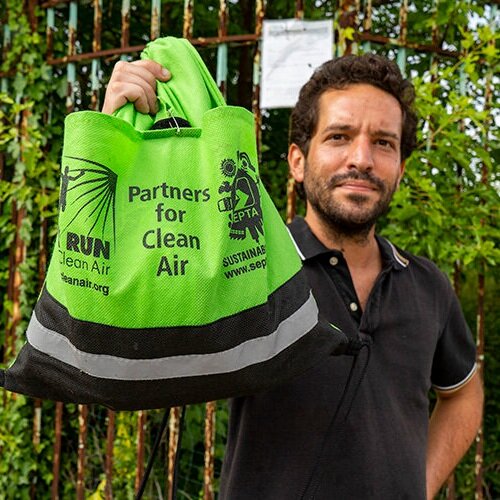
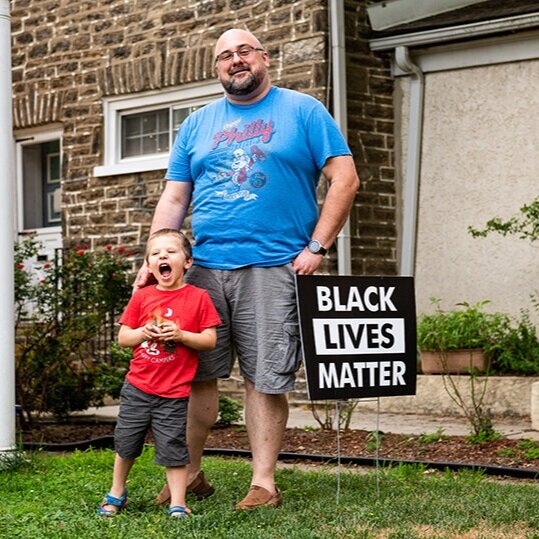



I found this article both interesting & very informative. I had no idea about the breadth of activities in which Esperanza is engaged, nor the amazing work the reverend Luis Cortés jr. is doing. Thank you.